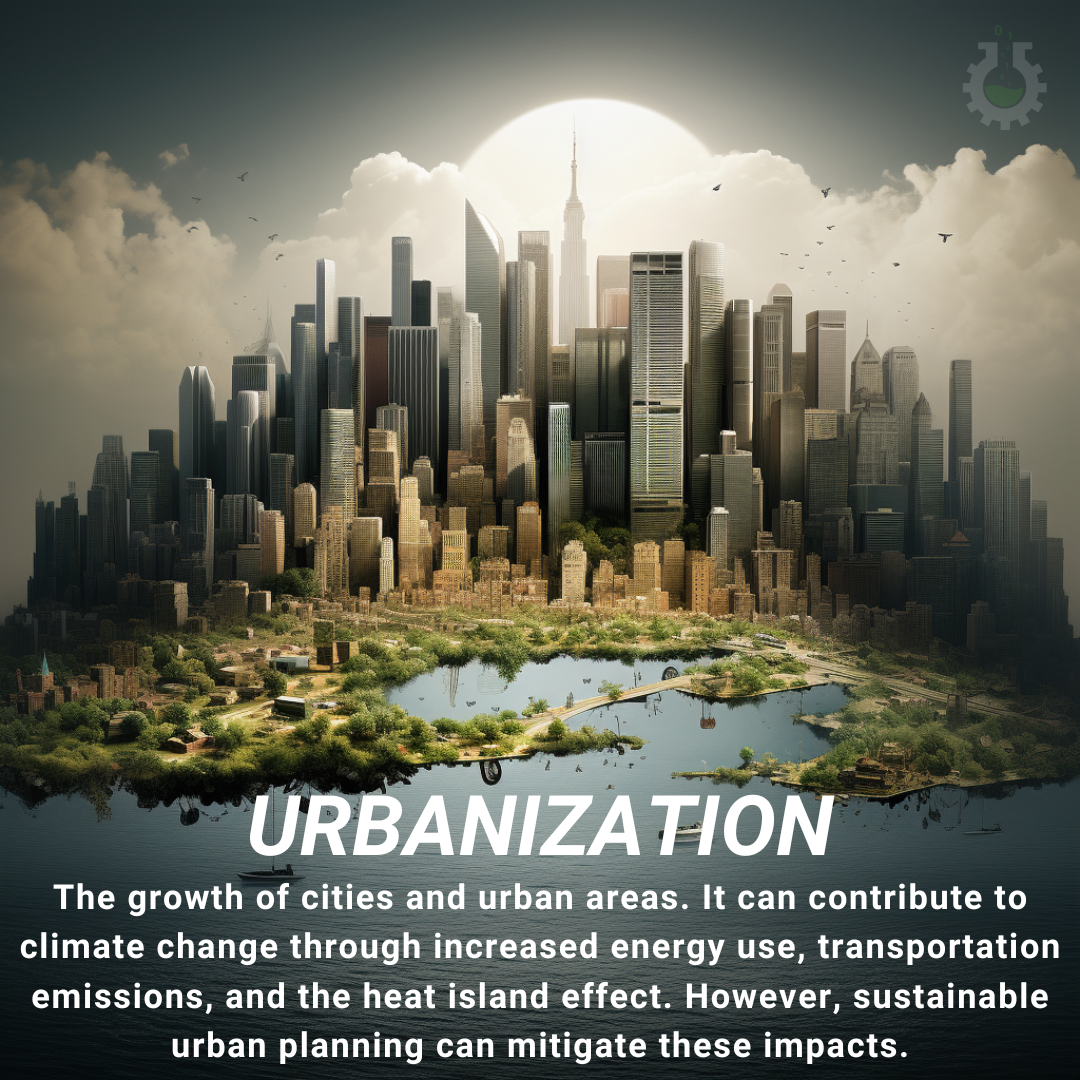September 13, 2023
Climate Change Poster Collection of the Day – Urbanization
Book a Demo
Today’s Climate Change Poster Collection features Urbanization is a term that encapsulates the shift from rural to urban living and the societal adaptations to this change. This isn’t merely a modern phenomenon but a rapid and historic global transformation. The most substantial global power shift has been the world’s urbanization, which took its first significant strides during the 18th century’s industrial revolution. Since 1950, the number of urban dwellers has overtaken rural inhabitants, marking a significant turning point in human history.
However, urbanization is not without its consequences. It has led to significant environmental impacts due to the increased demands on infrastructure and public health. Despite these challenges, urbanization is also a significant contributor to economic development, highlighting its dual role in shaping societies.
In the context of rapid urbanization and technological advancements, an interesting development came in 1999 with the introduction of “Cognitive Radio”. This is a type of radio that learns and adapts to its environment, aiming to improve the utilization of the radio frequency spectrum by dynamically assigning spectrum to users.
There are two types of cognitive radio. The first is Full Cognitive Radio, which takes into account all parameters from the user, network, and environment. The second type is Spectrum-Sensing Cognitive Radio, which only considers the availability of spectrum holes. However, the implementation of cognitive radio faces technical issues such as the need for highly accurate spectrum sensing techniques. It also grapples with regulatory and legal issues related to spectrum access rights, demonstrating the complex challenges facing this cutting-edge technology.
A recent study on the urban sprawl of Karachi, Pakistan, provides an illustrative case study of the impacts of urbanization. Although the urban expansion significantly contributed to the city’s economic growth, it also led to environmental degradation and resource depletion. The research underscores the urgent need for sustainable urban planning and balanced growth in Karachi. Future planning in the city, and indeed in all cities around the globe, must carefully consider the trade-offs between economic growth and environmental sustainability. The challenge of urbanization is not just to grow, but to grow wisely and sustainably.
Discover an inspiring collection of climate change posters.



